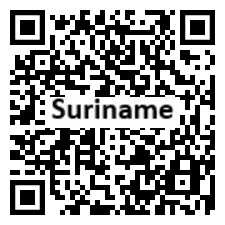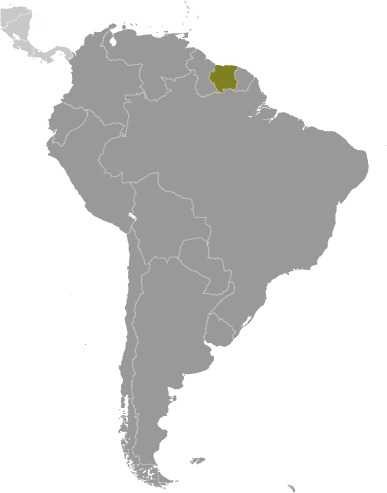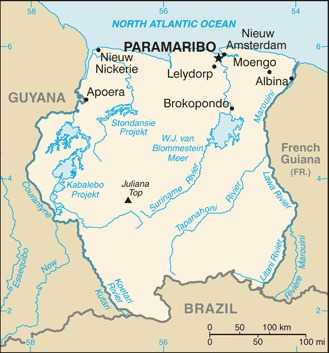Introduction
Background
The Spaniards first explored Suriname in the 16th century, and the English then settled it in the mid-17th century. Suriname became a Dutch colony in 1667; the Netherlands granted the colony independence in 1975.
Geography
Area
total : 163,820 sq km
land: 156,000 sq km
water: 7,820 sq km
Climate
tropical; moderated by trade winds
Natural resources
timber, hydropower, fish, kaolin, shrimp, bauxite, gold, and small amounts of nickel, copper, platinum, iron ore
People and Society
Population
total: 646,758
Ethnic groups
Hindustani (also known locally as "East Indians"; their ancestors emigrated from northern India in the latter part of the 19th century) 27.4%, Maroon (their African ancestors were brought to the country in the 17th and 18th centuries as slaves and escaped to the interior) 21.7%, Creole (mixed White and Black) 15.7%, Javanese 13.7%, mixed 13.4%, other 7.6%, unspecified 0.6% (2012 est.)
Languages
Dutch (official), English (widely spoken), Sranang Tongo (Surinamese, sometimes called Taki-Taki, is the native language of Creoles and much of the younger population and is lingua franca among others), Caribbean Hindustani (a dialect of Hindi), Javanese
Religions
Protestant 23.6% (includes Evangelical 11.2%, Moravian 11.2%, Reformed 0.7%, Lutheran 0.5%), Hindu 22.3%, Roman Catholic 21.6%, Muslim 13.8%, other Christian 3.2%, Winti 1.8%, Jehovah's Witness 1.2%, other 1.7%, none 7.5%, unspecified 3.2% (2012 est.)
Population growth rate
1.07% (2024 est.)
Government
Government type
presidential republic
Capital
name: Paramaribo
Executive branch
chief of state: President Chandrikapersad SANTOKHI (since 16 July 2020)
head of government: President Chandrikapersad SANTOKHI (since 16 July 2020)
Legislative branch
description: unicameral National Assembly or Nationale Assemblee (51 seats; members directly elected in 10 multi-seat constituencies by party-list proportional representation vote, using the D'Hondt method, to serve 5-year terms)
Economy
Economic overview
upper middle-income South American economy; new floating currency regime; key aluminum goods, gold, and hydrocarbon exporter; new IMF plan for economic recovery and fiscal sustainability; controversial hardwood industry
Real GDP (purchasing power parity)
$11.824 billion (2023 est.)
$11.583 billion (2022 est.)
$11.308 billion (2021 est.)
Real GDP per capita
$19,000 (2023 est.)
$18,700 (2022 est.)
$18,400 (2021 est.)
Agricultural products
rice, sugarcane, oranges, chicken, plantains, vegetables, bananas, coconuts, cassava, eggs (2022)
Industries
gold mining, oil, lumber, food processing, fishing
Exports
$2.534 billion (2023 est.)
$2.6 billion (2022 est.)
$2.299 billion (2021 est.)
Exports - partners
Switzerland 39%, UAE 21%, Belgium 10%, Guyana 5%, Trinidad and Tobago 4% (2022)
Exports - commodities
gold, refined petroleum, excavation machinery, wood, fish (2022)
Imports
$2.218 billion (2023 est.)
$2.342 billion (2022 est.)
$1.876 billion (2021 est.)
Imports - partners
US 25%, China 15%, Netherlands 13%, Trinidad and Tobago 6%, Japan 3% (2022)
Imports - commodities
refined petroleum, excavation machinery, cars, plastic products, tobacco (2022)
Exchange rates
Surinamese dollars (SRD) per US dollar -
Page last updated: Wednesday, July 24, 2024




